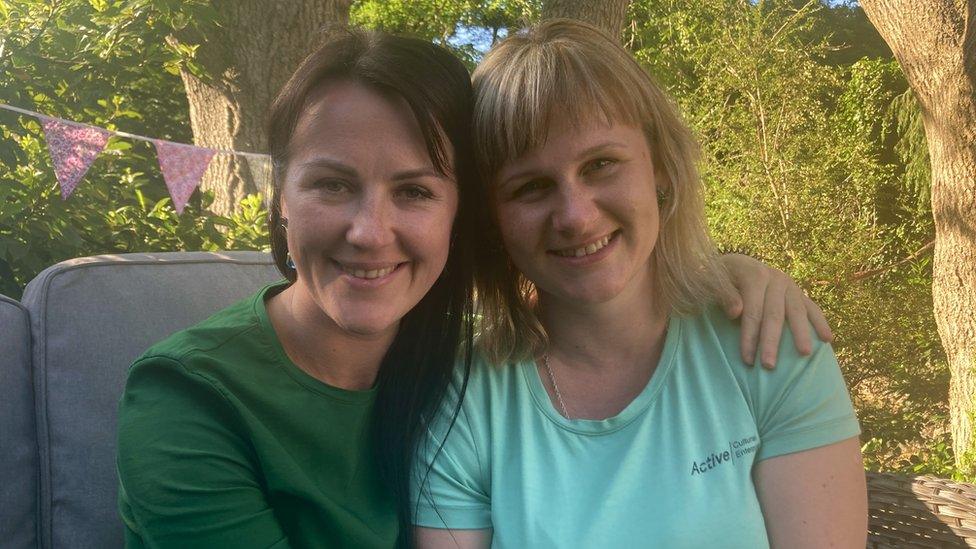Refugees in Wales grateful but want more help for those fleeing danger
- Published
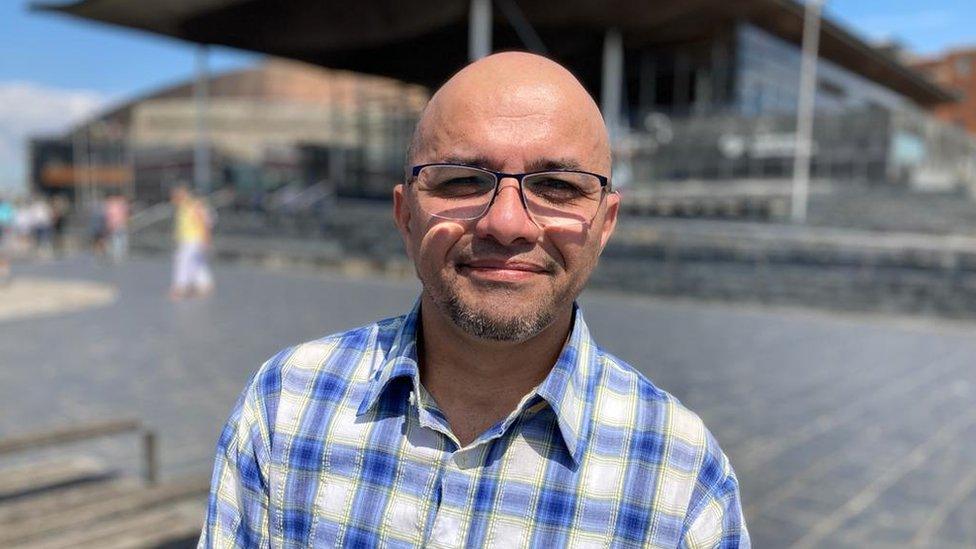
Carlos Ibarra: "Imagine if you are dropped like a paratrooper in a new land, knowing nothing"
Refugees living in Wales have expressed gratitude for the welcome they have received but have called for more help so people forced to flee their home settle in more easily.
They said refugees struggle to find employment, get children into schools and access other key services.
Minister Jane Hutt said the whole of Wales had a role to play.
In June, she announced a "pause" for new applications to Wales' Ukrainian refugee super sponsor scheme.
More than 2,000 visas have been issued under the Welsh government scheme, where individuals are welcomed to the UK through centres.
The Welsh government then takes responsibility for providing housing.
First Minister Mark Drakeford has said the scheme will not resume until more people are able to leave the welcome centres into homes.
Carlos Ibarra fled Venezuela with his wife and two children four years ago.
After being smuggled into Columbia the family flew to the UK, where they were placed in Swansea.
He described his experiences of finding sanctuary in Wales at an event in the Welsh Parliament, attended by organisations working with refugees and asylum seekers and arranged by Ms Hutt.
"When life turns into something different from what you expected you need as soon as you can, as quickly as you can, to rebuild your life," he said.
"Wales is second-to-none for that."
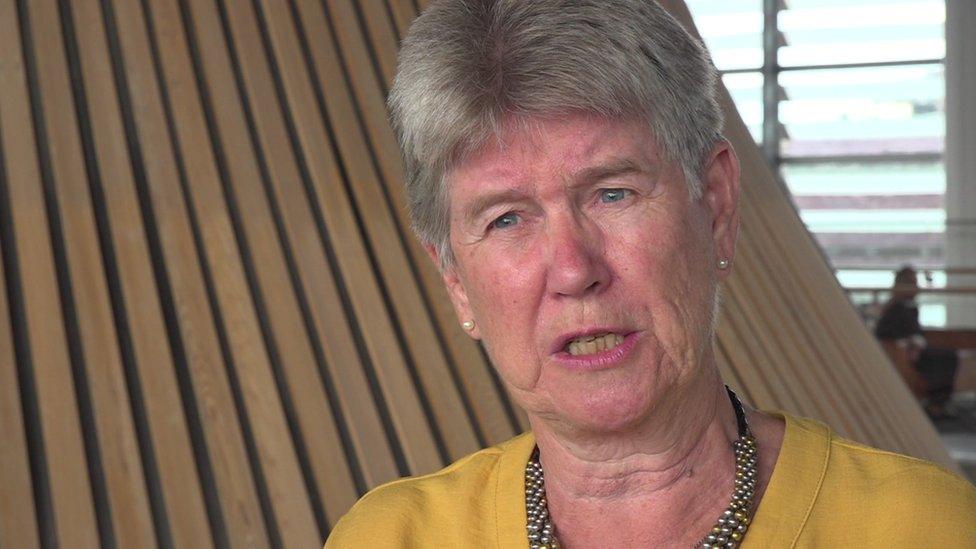
Jane Hutt says employers must get "on board because we've got skills here"
"What we experienced here in Wales was the chance to be ourselves again, to retake control of our lives, Wales, for us, has been a real, real sanctuary in the whole sense," Mr Ibarra said.
"We found friendly people, we found opportunities to work, we had many opportunities to share with bigger communities and smaller communities.
"So the asylum seekers and refugee population is huge here now and we've got the sense of family.
"Wales is a nation but it's like a big, big neighbourhood."
But he said more needed to be done to improve communications for people arriving in Wales and help them make a new life.
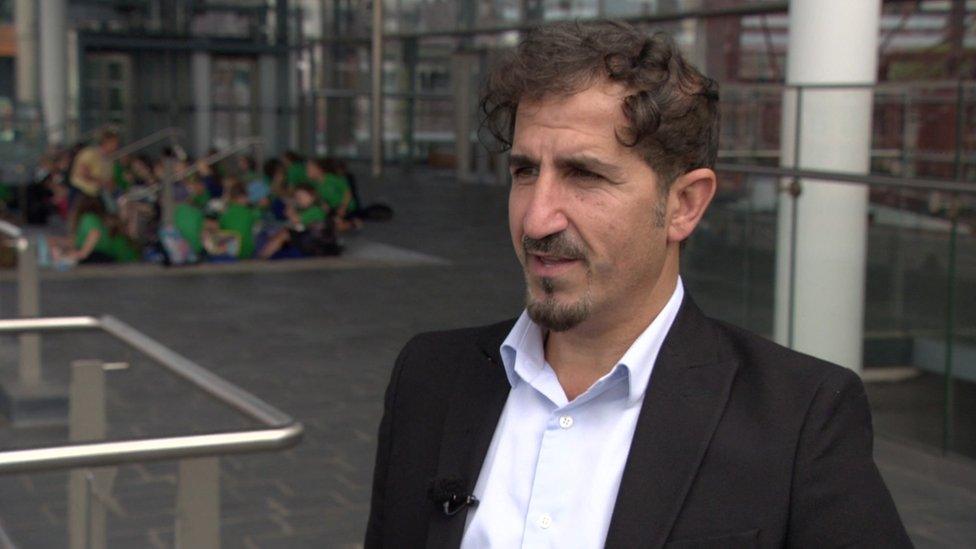
The Welsh Refugee Council's Sala Baba Rasool: "This is not a one, two, three, 10 years job"
"The Welsh government should definitely allocate more people within communities to link and to welcome refugees and asylum seekers," he said.
"Feeling welcome - it's not just to say 'welcome' - it's to find someone who welcomes you.
"Can you imagine if you are dropped like a paratrooper in a new land, knowing nothing, no language?
"You need guidance, you need a friend to do some work on it."
Hoyam Osman came to Cardiff from Sudan to join her refugee husband 16 years ago.
"We want the Welsh government to care about lots more events, and more help and education, more life skills classes," she said.
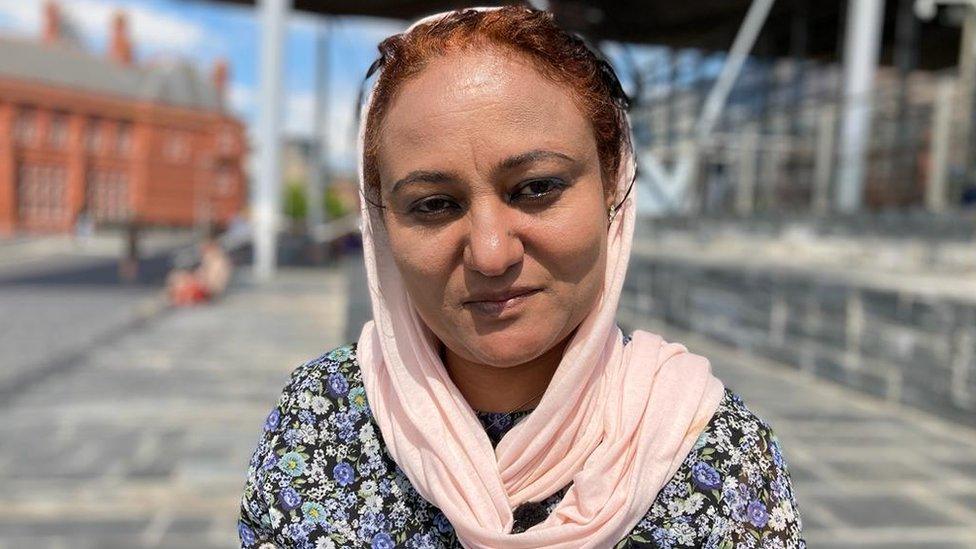
Hoyam Osman came to Cardiff from Sudan in 2006
Salah Baba Rasool, the Welsh Refugee Council's head of resettlement, arrived in Wales in 2003 from Kurdistan, in northern Iraq.
He said arranging education, employment and integration for refugees is "very complex" and an "ongoing" task.
"This is not a one, two, three, 10 years job, it's ongoing," he said.
"It's like any issues, [as a] human being we know we always want better."
Responding to the concerns raised, Ms Hutt said: "Of course, there's work to be done and where it's our responsibility, and that is health, education, housing, the environment, transport, we're doing what we can.
"But we have actions for local government, local authorities and for our schools [to do].
The minister said she also needed employers to get "on board because we've got skills here, we've got contributions that refugees want to make, and that means that the whole of Welsh society has to engage with us."
- Published24 March 2022
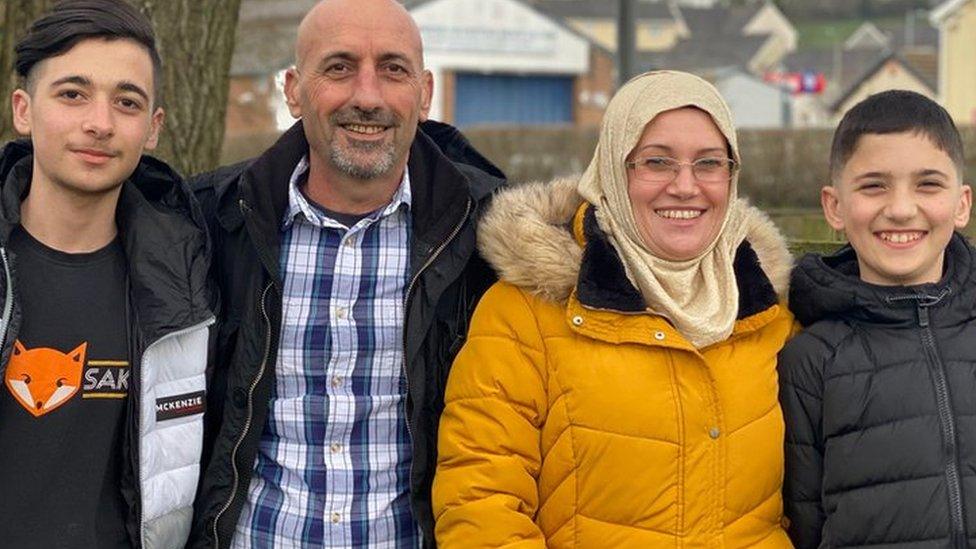
- Published30 June 2022
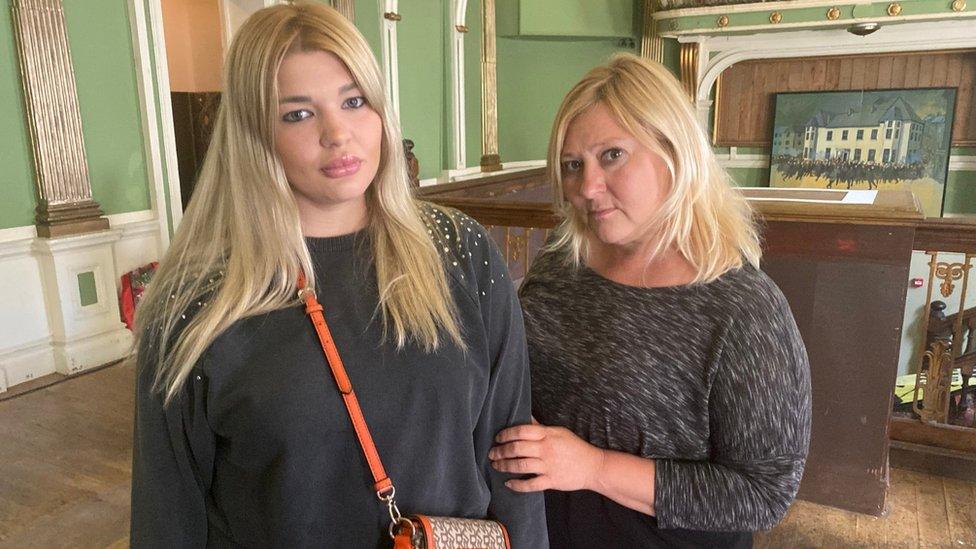
- Published24 June 2022
